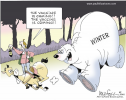Pretty cool! Now if only medical/science journals could explain anabolic pharmacology with comics mediumManna A. Annals Graphic Medicine - Be Aware of Droplets and Bubbles. Annals of internal medicine 2020. https://www.acpjournals.org/doi/abs/10.7326/G20-0114
Navigation
Install the app
How to install the app on iOS
Follow along with the video below to see how to install our site as a web app on your home screen.
Note: This feature may not be available in some browsers.
More options
Style variation
Guest viewing limit reached
- You have reached the maximum number of guest views allowed
- Please register below to remove this limitation
- Already a member? Click here to login
You are using an out of date browser. It may not display this or other websites correctly.
You should upgrade or use an alternative browser.
You should upgrade or use an alternative browser.
Can touching a barbell in the gym get you sick with the coronavirus?
- Thread starter Michael Scally MD
- Start date
[OA] Public Needs To Prep For Vaccine Side Effects
This summer, computational biologist Luke Hutchison volunteered for a trial of Moderna's COVID-19 vaccine. But after the second injection, his arm swelled up to the size of a “goose egg,” Hutchison says. He can't be sure he got the vaccine and not a placebo, but within a few hours, Hutchison, who was healthy and 43, was beset by bone and muscle aches and a 38.9°C fever. “I started shaking. I had cold and hot rushes,” he says. “I was sitting by the phone all night long thinking: ‘Should I call 911?’”
Hutchison's symptoms resolved after 12 hours. But, he says, “Nobody prepared me for the severity of this.”
He says the public should be better prepared than he was, because a subset of people may face intense, if transient, side effects, called reactogenicity, from Moderna's vaccine. Some health experts agree.
“Somebody needs to address the elephant: What about vaccine reactogenicity? While it's … not going to cause any long-term issues … how is that perception going to go with the public once they start receiving it?” asks Deborah Fuller, a vaccinologist at the University of Washington, Seattle, whose lab is developing second-generation RNA vaccines against COVID-19. She worries the side effects could feed vaccine hesitancy. “I feel like it's being glossed over.”
Those concerns arise after a week of good news about coronavirus vaccines: Both Moderna and Pfizer, with BioNTech, announced their messenger RNA (mRNA) vaccines reached 95% efficacy in clinical trials of tens of thousands of people. The firms added that the trials showed no serious safety concerns.
Both vaccines consist of a snippet of genetic code directing production of the coronavirus' spike protein, delivered in a tiny fat bubble called a lipid nanoparticle. Some researchers suspect the immune system's response to that delivery vehicle is causing the short-term side effects.
…
Wadman M. Public needs to prep for vaccine side effects. Science 2020;370:1022. http://science.sciencemag.org/content/370/6520/1022.abstract
This summer, computational biologist Luke Hutchison volunteered for a trial of Moderna's COVID-19 vaccine. But after the second injection, his arm swelled up to the size of a “goose egg,” Hutchison says. He can't be sure he got the vaccine and not a placebo, but within a few hours, Hutchison, who was healthy and 43, was beset by bone and muscle aches and a 38.9°C fever. “I started shaking. I had cold and hot rushes,” he says. “I was sitting by the phone all night long thinking: ‘Should I call 911?’”
Hutchison's symptoms resolved after 12 hours. But, he says, “Nobody prepared me for the severity of this.”
He says the public should be better prepared than he was, because a subset of people may face intense, if transient, side effects, called reactogenicity, from Moderna's vaccine. Some health experts agree.
“Somebody needs to address the elephant: What about vaccine reactogenicity? While it's … not going to cause any long-term issues … how is that perception going to go with the public once they start receiving it?” asks Deborah Fuller, a vaccinologist at the University of Washington, Seattle, whose lab is developing second-generation RNA vaccines against COVID-19. She worries the side effects could feed vaccine hesitancy. “I feel like it's being glossed over.”
Those concerns arise after a week of good news about coronavirus vaccines: Both Moderna and Pfizer, with BioNTech, announced their messenger RNA (mRNA) vaccines reached 95% efficacy in clinical trials of tens of thousands of people. The firms added that the trials showed no serious safety concerns.
Both vaccines consist of a snippet of genetic code directing production of the coronavirus' spike protein, delivered in a tiny fat bubble called a lipid nanoparticle. Some researchers suspect the immune system's response to that delivery vehicle is causing the short-term side effects.
…
Wadman M. Public needs to prep for vaccine side effects. Science 2020;370:1022. http://science.sciencemag.org/content/370/6520/1022.abstract
During a recent Zoom lecture, Terry Iverson, an economist at Colorado State University, posed a question to the students in his introductory economics course. It was one that Americans have been mulling all year. “What’s the value of a life?” he asked. “And how do we compare lives saved with the value of lost economic activity?”
For professors, particularly those in the social sciences, covid-19 has provided a real-time trove of case studies on which to center syllabi. Iverson began developing his course, The Economics of covid-19, in April. He specializes in climate change, and as lockdowns were starting he began to draw connections between ecological disaster and global pandemic. In the lecture, he told his students, “If we think about covid, we might want to add up the costs and benefits of social distancing.” Iverson, who is forty-four, had a salt-and-pepper beard and wore black-rimmed glasses. “Suppose the state of Colorado is going into lockdown for two weeks,” he said, and explained how to conduct a cost-benefit analysis, weighing the advantages against the potential economic losses.
Attendees of last month’s Naughty in Nawlins swingers and alternative lifestyle convention left town with more than just a post-coital glow and fuzzy memories of hedonistic nights in the French Quarter: At least 41 of the estimated 300 randy revelers have since tested positive for COVID-19, according to organizers.
In an apologetic but defensive blog post, head swinger Bob Hannaford acknowledged that the spouse swapping soiree wasn’t as safe as he and his co-host and wife, Tess, had hoped. At least one attendee was hospitalized in the aftermath but has since recovered as hosts continue to warn guests of the coronavirus' indecent exposure.
Despite involving booze and the swapping of bodily fluids, Hannaford said he initially felt it would be safe, as half of the attendees claimed to have tested positive for COVID-19 antibodies and thought they were immune.
József Szájer apologised for attending what he called a "house party." According to local media in Belgium he tried to climb out of a window to evade police.
A politician from Hungary’s ruling party has apologised for breaking COVID lockdown restrictions in Belgium to attend what local media reported was a full-blown orgy.
József Szájer, a longtime representative of Hungarian Prime Minister Viktor Orbán’s Fidesz party, unexpectedly quit as a member of the European Parliament (MEP) on Sunday.
On Tuesday, it was reported in Belgium that police had broken up a sex party involving 25 people above a bar in the centre of Brussels, only several hundred metres from the Belgian capital’s main police station.
Belgium is in the middle of a second lockdown, with restaurants and bars closed, a curfew in place and gatherings of more than four people in public spaces banned. The 25-person orgy broke every single one of these restrictions.
Similar threads
- Replies
- 59
- Views
- 1K
Sponsors
Latest posts
-
SLU-PP-332: Bioavailability and the True Minimum Effective Dose
- Latest: LostButFound
-
-





